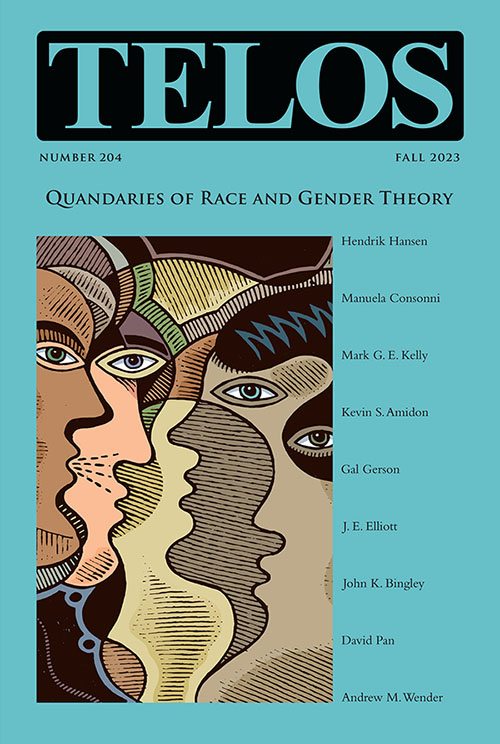Telos 204 (Fall 2023): Quandaries of Race and Gender Theory is now available for purchase in our store. Individual subscriptions to Telos are also available in both print and online formats.
 Old-style leftists have puzzled over how today’s left-liberals have abandoned traditional left-wing goals such as reducing class inequality and improving working-class standards of living. A key reason lies with the shifting of the politics of class. As Paul Piccone and Fred Siegel argued over thirty years ago in these pages, the problem of class is no longer a question of capitalists against workers. According to a recent Gallup poll, 61 percent of U.S. adults own stock, and such capitalist ownership, while a good way to increase wealth, is no longer the preserve of the ruling class and does not by itself confer much power. Rather, the ruling class that exercises real power consists not of owners but primarily of a bureaucratic class of managers in corporations, government, non-profits, universities, and the media. In spite of this shift, theories developed over a century ago continue to shape current leftist perspectives. Dominated by a socialist perspective, left-wing social policy fails to recognize and address the new contours of class division. As a result, it continues to employ a framework that is based on an anti-capitalist and anti-market agenda that tries to manipulate outcomes to promote socialist goals, precisely the methods of a managerial class.
Old-style leftists have puzzled over how today’s left-liberals have abandoned traditional left-wing goals such as reducing class inequality and improving working-class standards of living. A key reason lies with the shifting of the politics of class. As Paul Piccone and Fred Siegel argued over thirty years ago in these pages, the problem of class is no longer a question of capitalists against workers. According to a recent Gallup poll, 61 percent of U.S. adults own stock, and such capitalist ownership, while a good way to increase wealth, is no longer the preserve of the ruling class and does not by itself confer much power. Rather, the ruling class that exercises real power consists not of owners but primarily of a bureaucratic class of managers in corporations, government, non-profits, universities, and the media. In spite of this shift, theories developed over a century ago continue to shape current leftist perspectives. Dominated by a socialist perspective, left-wing social policy fails to recognize and address the new contours of class division. As a result, it continues to employ a framework that is based on an anti-capitalist and anti-market agenda that tries to manipulate outcomes to promote socialist goals, precisely the methods of a managerial class.







